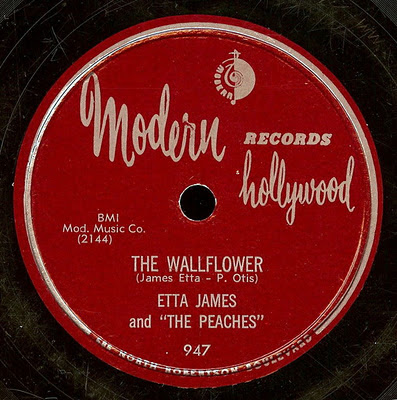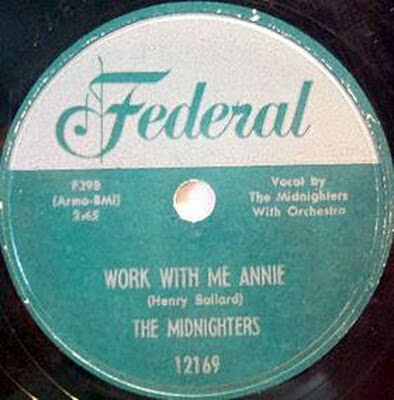With her husband, Artis Mills, and two sons, Donto and Sametto, at her side, Etta James left us last Friday in a hospital in Riverside, California. She was 73 years old. She had been suffering with leukemia for almost a year and had also been diagnosed with Alzheimer’s disease in 2008. Her passing was a monumental loss for R&B fans all over the world. We can only thank God that her music will live on forever.
To say that Etta James had a rough life would be a serious understatement. She was born Jamesetta Hawkins on 25 January 1938 to a 14-year old mother named Dorothy. Her life was scarred by heroin addiction. She had been arrested for forgery and cashing bad checks. Etta’s husband took responsibility for her drug use when the two of them were arrested shortly after getting married in 1969. Etta never knew her father, but speculated that he was the legendary pool player, Minnesota Fats. Etta’s mother, who she called The Mystery Lady, ran around with various men and frequently left her in the hands of caretakers. She called one of the couples who took care of her Sarge and Mama Lu. She began singing with the Echos of Eden choir at St. Paul Baptist Church in Los Angeles after receiving vocal training from James Earle Hines, who started working with her when she was only five years old. During this time, Sarge kept trying to get the church to pay him for Etta’s singing, but they never did. Sarge would wake Etta up in the middle of the night and force her to sing for him and his all night poker buddies, who were all drunk at the time. If she refused, Sarge would beat her. Etta was a bed-wetter, so she often had to sing for the men while soaking in her own urine.
When Mama Lu died in 1950, Etta’s real mother took her to the Fillmore district in San Francisco. She loved listening to doo wop music, which inspired her to start her own group called the Creolettes. When she was 14, she met bandleader Johnny Otis, who took Etta under his wing and helped launch her professional career. He changed the name of her group to The Peaches, then twisted her name around to put her in front of the group. She became Etta James And The Peaches.
Johnny Otis helped Etta get signed to Modern Records where she made her first record. It was an Answer Song based on Work With Me Annie by The Midnighters, written and sung by Henry “Hank” Ballard, which was itself inspired by a 1953 recording called Get It by Hank Ballard when he was with a group called the Royals. Etta’s version was released with the title The Wallflower, even though that term is never sung in the lyrics. This was done to avoid censorship because the word “roll” was common slang at the time for having sex. In fact, the FCC had originally objected to Hank Ballard’s record because of its overly sexual lyrics. But once that record crossed over to become a huge favorite with white teenagers, the FCC was trumped by public demand for the record. If you think about that while you listen to these songs, it makes them even more interesting and entertaining!
Here’s The Wallflower by Etta James And The Peaches on (78 RPM) Modern 947 from 1955:
The male vocalist on this record is actually Richard Berry, the guy who wrote and first recorded the frat rock classic, Louie Louie!
And here’s Work With Me Annie by The Midnighters on Federal 12169 from 1954:
This Hank Ballard song was a #1 R&B hit that crossed over to reach #22 on Billboard’s Hot 100. Etta’s answer became a #1 hit on the R&B charts, but never made it on the “white” charts. That’s because Mercury Records quickly released their own version of the song as Dance With Me Henry sung by Georgia Gibbs, which became a #1 hit on Billboard’s Hot 100. That makes this record fall into another category on MusicMaster Oldies which I call Black And White. It’s where the record industry literally screwed black artists by having white artists cover their hit songs to capitalize on record sales to white teenagers. Aren’t we all glad that those days are gone?
So you can compare the Black vs White versions, here’s Dance With Me Henry (Wallflower) by Georgia Gibbs on Mercury 70572 from 1955:
Hank Ballard actually followed up Etta’s answer with an Answer Record of his own, which he called Henry’s Got Flat Feet (Can’t Dance) on Federal 12224 in 1955. How come don’t we have fun with records like this anymore?
There are currently over 50 Etta James tunes playing on MusicMaster Oldies, but I’m in the process of adding more. There are also 863 different Answer Songs being played, with more on the way!



